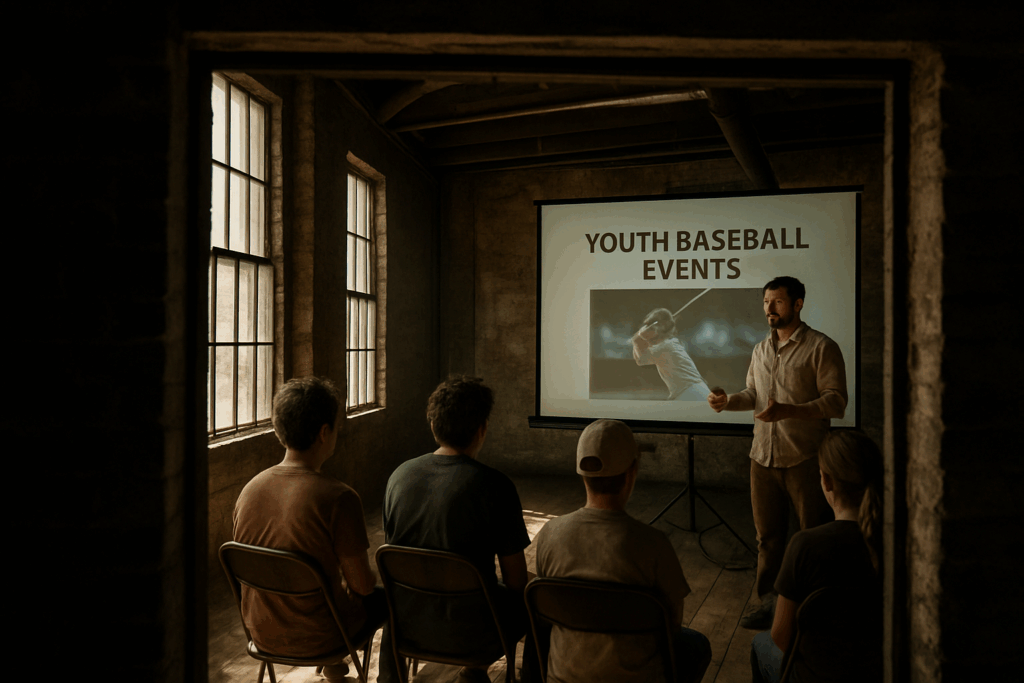What is obernaft?
Obernaft isn’t flashy, and that’s kind of the point. At its core, it’s a framework—or more accurately, a mindset—that prioritizes utility and clarity. Created for the kinds of people who care about results more than jargon, obernaft strips down processes and tools to what actually works.
Think of obernaft as the minimalist’s productivity engine. It isn’t trying to do a hundred things just okay. It’s about doing a few things exceptionally well—and fast. You won’t find unnecessary layers or bloated features. What you get is the shortest path from “what now?” to “done.”
Why it Matters
Time and energy are limited. Most tools waste both. Obernaft cuts the fluff and delivers what you need—a streamlined approach to managing complexity without drowning in it.
For freelancers juggling clients, teams scaling fast, or even solo founders building in public, the overhead of traditional systems just doesn’t make sense anymore. Obernaft offers precision without the bulk—a scalpel instead of a Swiss army knife.
Here’s where it fits in: Simplified processes for daily workflows. Lightweight architecture for building MVPs. Repeatable systems that stay out of your way.
Built for Builders
Obernaft wasn’t made for armchair theorists. It’s made for people who execute.
If you’re coding at 2 a.m., chasing KPIs, or running operations across three time zones, complexity is your biggest enemy. Obernaft helps cut down the cruft, so your focus stays on shipping, improving, and repeating.
Its key strength? Mechanical simplicity. Think clean codebases, straightforward checklists, and modular design that scales from one user to many without needing a refactor every six weeks.
The Core Principles
Obernaft isn’t a strict doctrine—but certain principles guide how it works:
1. Build Lean. Start with what matters. Always aim for the lowestmaintenance solution that solves the actual problem.
2. Maintain Clarity. If someone else can’t understand your system in five minutes, it’s too complicated.
3. Make It Flexible. Things will change. Obernaft keeps systems dynamic, not rigid. Inputs and outcomes evolve—you should, too.
4. Test and Repeat. Improvement comes from iteration, not inspiration. Fail small and often, then improve relentlessly.
These principles aren’t revolutionary. That’s the strength. They’re obvious and executable.
RealWorld Use Cases
Say you’re launching a product. Traditional frameworks might demand a deepdive spec, stakeholder meetings, flowcharts. Obernaft cuts directly to wireframes, prototypes, testing loops.
Or you’re managing content. Instead of five tools for scheduling, approval, and analytics, you strip it back: one doc, one calendar, one metric. You produce more, stress less.
Even for backend developers or analytics teams, obernaft’s plugandplay mindset lets you build micropatterns with clarity. No more Frankenstein’s monster of legacy processes stitched together “for now.”
What It Isn’t
Obernaft isn’t a silver bullet. It won’t magically fix broken products or bad management. It’s also not a replacement for deep technical skill, creative strategy, or solid leadership.
It won’t automate your decisionmaking. It’s not “AIpowered” or bloated with integrations. It’s not pretending to be a platform. It’s just a tool that says, “Do the work, but smarter.”
How to Start Using It
You don’t need training courses to adopt obernaft. Start small: Audit your current systems. Strip down anything that seems excessive. Replace clutter with clarity—manual steps are okay if they reduce complexity. Use lightweight templates, singlesourceoftruth docs, visual processes.
Implement it in code. In documentation. In planning. Anywhere bloat creeps in.
And most importantly, keep questioning: “Is this adding value, or just noise?”
Final Word
There’s a reason more teams and solo builders are moving toward leaner systems. Obernaft gives them a framework that respects time, demands precision, and urges you to just get to work.
It’s not a product you buy. It’s a lens you use. And once you see through it, noisy tools and overthought controls start to look like what they are—waste.
Use obernaft. Build smarter. Strip it down. Get it done.

 Chief Marketing Officer (CMO)
Kaseyer Ziolkowski leads the marketing and branding efforts, shaping the company’s public image and outreach strategies. With a keen eye for trends and consumer behavior, Kaseyer crafts campaigns that resonate with target audiences. He has a background in digital marketing and creative content development. Beyond work, he enjoys photography, storytelling, and connecting with diverse communities to better understand market needs.
Chief Marketing Officer (CMO)
Kaseyer Ziolkowski leads the marketing and branding efforts, shaping the company’s public image and outreach strategies. With a keen eye for trends and consumer behavior, Kaseyer crafts campaigns that resonate with target audiences. He has a background in digital marketing and creative content development. Beyond work, he enjoys photography, storytelling, and connecting with diverse communities to better understand market needs.
